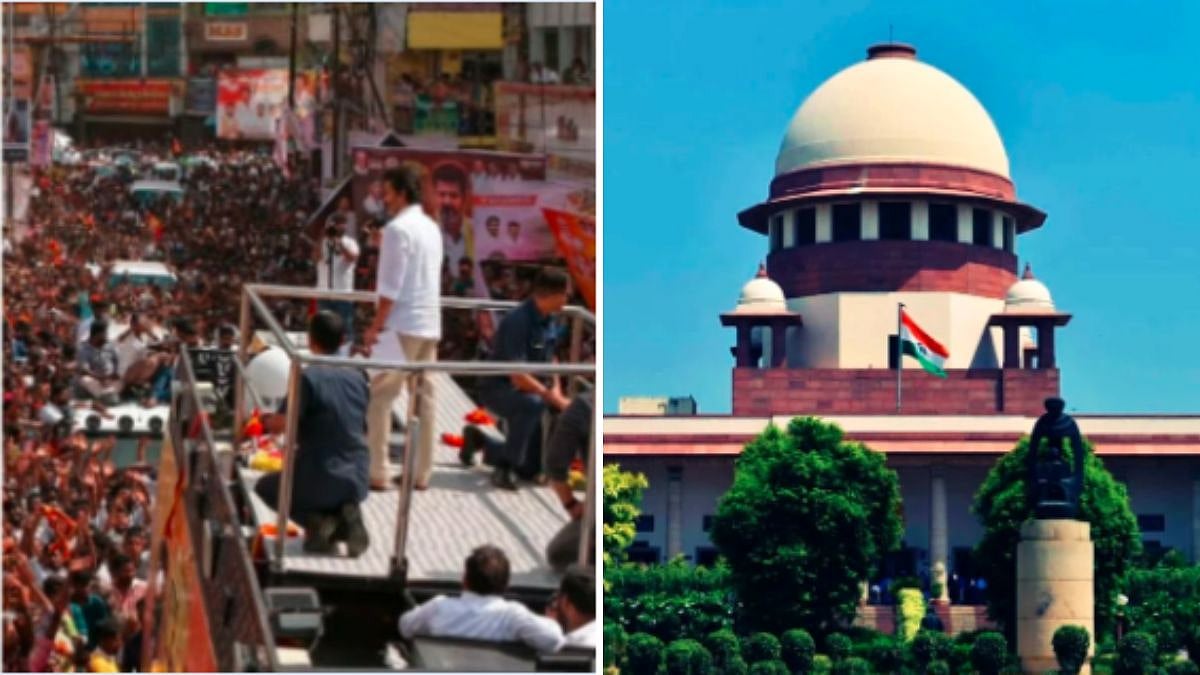New Delhi:
The Supreme Court has agreed to hear on Friday a plea filed by the actor Vijay’s political party, Tamilaga Vettri Kazhagam (TVK), through its General Secretary Aadhav Arjuna. The plea seeks an impartial investigation into the Karur stampede, calling for a probe conducted by a panel led by a retired top-court judge.
The plea, filed through advocates Dixita Gohil, Pranjal Agarwal, and Yash S Vijay, challenges the Madras High Court’s October 3 order that constituted a Special Investigation Team (SIT) to investigate the tragic stampede. The SIT is headed by the Inspector General of Police and comprises senior officers from the Tamil Nadu Police.
TVK’s plea contends that despite the High Court’s clear doubts about the independence of the police probe, the Court still directed that the SIT be formed solely with state police officers. The petition states, “The Petitioner-party as well as its leaders are prejudiced by the order which appoints an SIT composed solely of officers of the State Police, especially in the face of the observations of the Hon’ble High Court expressing its dissatisfaction with the independence of State Police and its conduct, and prejudicial factual findings against the Petitioner.”
The plea further argues that the possibility of a pre-planned conspiracy by certain miscreants to create trouble at the rally site cannot be ruled out. Therefore, an independent investigation where all contesting facts can be examined is necessary.
Additionally, the plea raises concerns over certain strong observations made by the High Court against TVK, which it claims have caused severe prejudice to the party and its office-bearers. It argues that the High Court’s observations and directions were made in violation of the principles of natural justice and fair trial, without conducting any factual inquiry, verifying evidence, or providing TVK or its officials a chance to be heard.
Specifically, the plea challenges the High Court’s observation condemning TVK’s leadership for allegedly “fleeing from the scene of occurrence” and failing to provide assistance to the public. According to the plea, these claims are factually incorrect, misleading, and contradictory to the actual record.
“The contemporaneous sequence of events clearly establishes that, upon receiving information that certain individuals had fainted during the event, the Petitioner’s leadership and Party cadre took immediate and coordinated steps to ensure medical aid and relief were provided without delay,” the plea asserts.
On October 3, the Madras High Court ordered the constitution of the SIT headed by the Inspector General of Police to conduct a comprehensive investigation into the stampede that claimed 41 lives and left many injured. The Court also banned political rallies, roadshows, and similar public events along state and national highways in Tamil Nadu until Standard Operating Procedures (SOPs) are formulated.
The High Court strongly criticised TVK party workers for allegedly failing to rescue the public left stranded during the incident and questioned the State government’s lenient approach towards holding the event organisers accountable.
*Note: Except for the headline, this article has not been edited by the FPJ editorial team and is auto-generated from an agency feed.*
https://www.freepressjournal.in/india/supreme-court-to-hear-tvk-party-plea-on-karur-stampede-probe-seeks-independent-investigation
